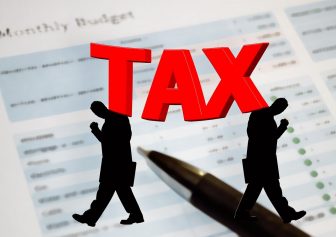 Inheritance tax receipts hit £5bn in the seven months from April to October 2024, the latest data from HM Revenue and Customs shows.
Inheritance tax receipts hit £5bn in the seven months from April to October 2024, the latest data from HM Revenue and Customs shows.
This is £0.5bn higher than the same period in the previous tax year and continues the upward trajectory over the last two decades. Last full tax year inheritance tax raised £7.499bn and currently just one in 20 estates is liable.
However, in the Autumn Budget the Chancellor announced major changes, including:
+ An extension to the freeze on IHT thresholds, which have been frozen for a further two years (until 2030).
+ Agricultural Relief and Business Property Relief have been reformed, meaning that from April 2026, the first £1m of qualifying combined assets will have no inheritance tax at all, but for assets overt £1m a 50% relief will apply, at an effective rate of 20%.
+ Qualifying AIM shares will no longer have full exemption from IHT, instead from 2026 they will have an inheritance tax rate of 20% if they are held for two years.
+ From 6th April 2027, inherited pensions could be subject to inheritance tax in addition to income tax levied on the recipient meaning passed down pensions could be taxed at an effective rate of up to 67% – subject to consultation.
Alex Davies, CEO and Founder of Wealth Club said: “Inheritance tax was already an absolute cash cow for the government. The extreme changes announced in last month’s Budget which badly affect farmers, business owners, pension policyholders and investors, mean these figures are only going to increase over the coming years.
“We believe all the changes to inheritance tax made in the Budget are extremely short sighted. Firstly, the tax burden is already at its highest in 70 years and growth is very low. More tax is likely to stifle growth further. Secondly these changes have given those affected no time to plan. It’s very much a case of “one day, that’s your money, the next day, it’s not”; a sentiment which is hardly going to encourage people to invest for the future whether that’s in their own business or in a savings vehicle such as a pension.
“That said you can only base your decisions on the facts as they are now and seemingly there are still ways available to reduce the inheritance tax paid by your estate, although many of them do require time and more risk:
Davies advises those concerned about inheritance tax should to consider the following:
+ Giving money away early. Gifts taken out of regular income, which are not deemed to affect the giver’s standard of living, are inheritance tax free on day one – as are certain smaller gifts. Timing is key as you can give unlimited amounts away but typically these take seven years to be completely inheritance tax free. Of course, once you give away the money you’ve lost control. If you need it back for an emergency, that’s not an option.
+ Investing in unlisted companies that qualify for Business Property Relief. These are typically inheritance tax free after two years. Investing in unquoted businesses can be risky, however, unlike giving the money away, you retain control. From 2026 you will have an overall £1m Business Relief Allowance. Anything in addition will be taxed at 20%.
+ Investing in an AIM ISA. ISAs are not inheritance tax free. When you pass away, your loved ones could miss out on 40% of your hard-earned cash. AIM ISAs are a popular, although much riskier way, to reduce this. Currently after two years they could be IHT free. From 2026 the IHT will be halved toa rate of 20%.


Comments are closed.